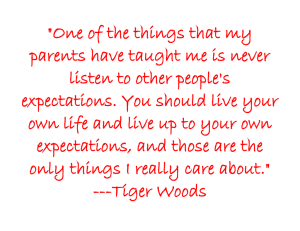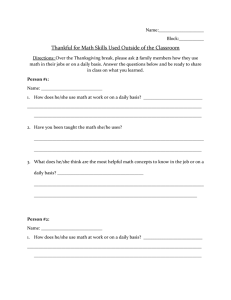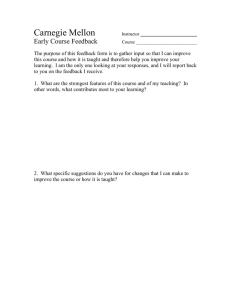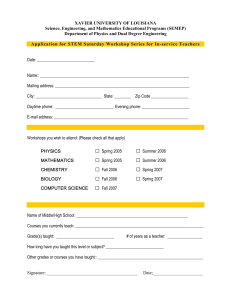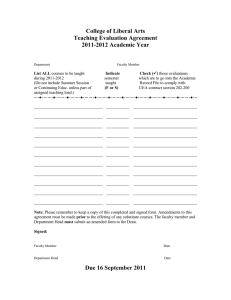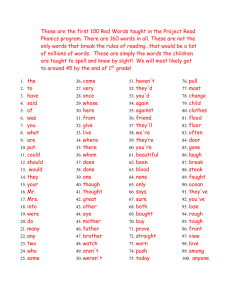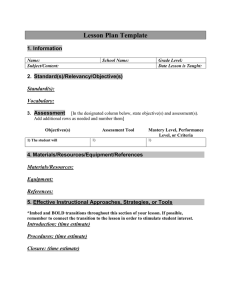HOS timeline-Notes on separation Period (pre-1950) Pre-curriculum reform period -rote memorization
advertisement
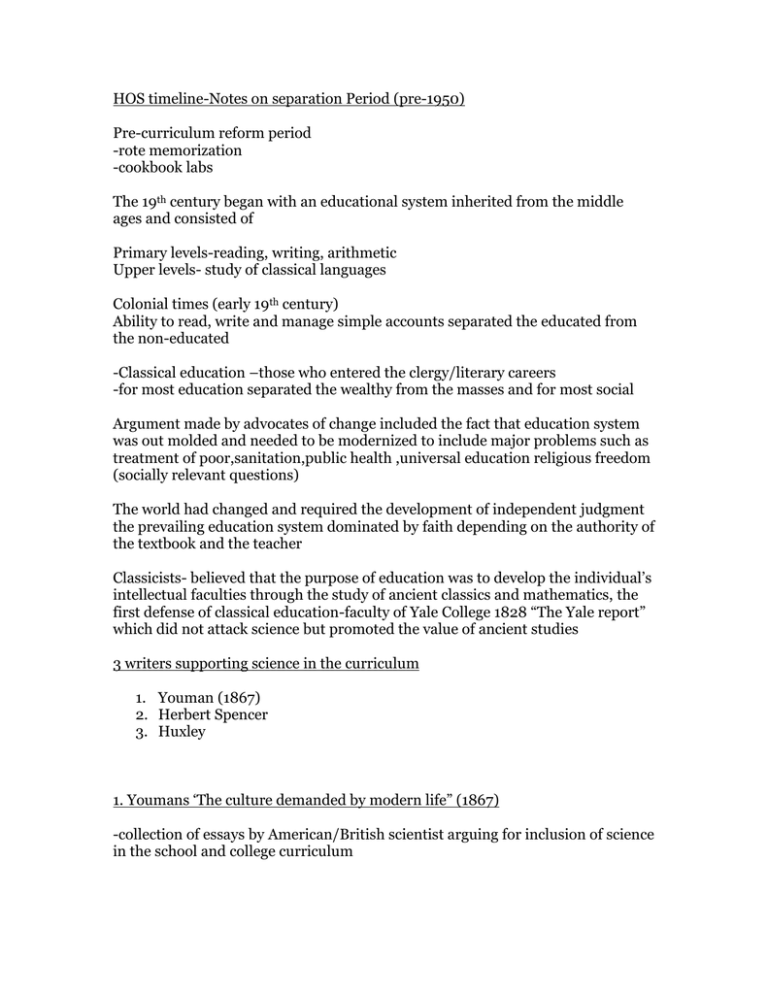
HOS timeline-Notes on separation Period (pre-1950) Pre-curriculum reform period -rote memorization -cookbook labs The 19th century began with an educational system inherited from the middle ages and consisted of Primary levels-reading, writing, arithmetic Upper levels- study of classical languages Colonial times (early 19th century) Ability to read, write and manage simple accounts separated the educated from the non-educated -Classical education –those who entered the clergy/literary careers -for most education separated the wealthy from the masses and for most social Argument made by advocates of change included the fact that education system was out molded and needed to be modernized to include major problems such as treatment of poor,sanitation,public health ,universal education religious freedom (socially relevant questions) The world had changed and required the development of independent judgment the prevailing education system dominated by faith depending on the authority of the textbook and the teacher Classicists- believed that the purpose of education was to develop the individual’s intellectual faculties through the study of ancient classics and mathematics, the first defense of classical education-faculty of Yale College 1828 “The Yale report” which did not attack science but promoted the value of ancient studies 3 writers supporting science in the curriculum 1. Youman (1867) 2. Herbert Spencer 3. Huxley 1. Youmans ‘The culture demanded by modern life” (1867) -collection of essays by American/British scientist arguing for inclusion of science in the school and college curriculum *believed that science involved the process that produced useful knowledge and improved mental power at the same time -Believed that science should be taught at an early age 2. Huxley science practical, utilitarian study, superior form of study essential part of understanding the modern world science had the power to affect the direction of one’s intellectual development science taught early on laboratory study important component of science instruction 3. Herbert Spencer (1864) -popularizing science -classified human activity into major categories a) Self preservation b) rearing/discipline of offspring c) Maintenance of social /political relations to leisure Trend of science education Movement from formality and dogmatism-------- understanding, meaning and freedom Age-appropriate learning 18th/19th century science – European influence on American education American Academy-First American institution to provide utilitarian education -surveying,navigation,agriculture accounting (1750-1850) -first important institution to promote the study of science -science teaching was not high quality Short courses 6weeks textbooks were inadequate teachers poorly prepared to teach the wide range of subjects *peaked in 1850 after 1850 decline Pestalozzi Used Rousseau’s writing and applied them to a residential school (preparing students for life) -sense impressions, experimentation, reasoning -base education on natural development of the Childs faculties -independent self activity -teaching active process which required teachers to interact with the subject matter Herbartan Pedagogy(1890) -creation of the mind -conceptual understanding -interest operates 4 step model of teaching 1. 2. 3. 4. stimulate pupils interest concept formation direct instruction application -also responsible for the organization of the curriculum Eliot (president of Harvard 1869-1895) did not like the way science was taught little time was devoted to the curriculum hands on –not memory develop –discipline of the mind quality of instruction generally poor Two major criticisms -excessive emphasis on memory at the expense of observational skills -artificial difficulty of curriculum oppressive drudgery forced to work hard reference DeBoer, G. E. A History of Ideas in Science Education: Implications for Practice. New York: Teachers College Press,1991. The committee of 10 -purpose to make college requirements more uniform -smoother transition from high school to college -uniform entrance requirements what subjects should be taught in schools how it should be taught time allotted Overview 1. science should be based on direct experience with physical world rather than textbooks 2. students should be able to make their own observations 3. opposed to memorization 4. knowledge must come with understanding 5. 1/5 time in high school devoted to study science Committee on college entrance requirements (1896) -purpose to lay down program of study that would serve as a norm for secondary schools -colleges were to accept satisfactory completion of these programs for college admissions -16 units proposed Committee of Reorganization of science education (CRSE) -Education curriculum needed to be re-organized to prepare people for potential employment -effectiveness in the social world -Education for social control -society had changed and education was not organized to help people keep up with the changes 1918-call for social relevance -a curriculum that needed to meet the practical demands of the great masses of people Cardinal Principles (1918) a) health b) command of fundamental processes c) worthy home members d) vocation e) citizenship f) worthy of leisure g) ethical character 1893-1920 Shift from sciences ability to develop one’s intellectual skills to develop an individual who would be a happy member of society John Dewey (1859-1952) learning was active Schooling unnecessarily long and restrictive. Children came to school to do things and live in a community which gave them real, guided experiences this contributed to their capacity to contribute to society. students should be involved in real-life tasks philosophy founded “progressive education” .
